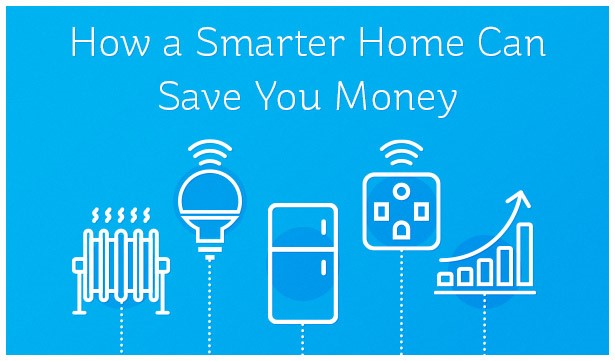In the rapidly evolving landscape of technology, smart homes have become synonymous with convenience, security, and, surprisingly, cost savings. Beyond the allure of automation and connectivity, a smart home can be a strategic investment that pays off in various ways. Here are five ways a smart home can save you money.
- Energy Efficiency:
Smart home devices, such as smart thermostats, lighting systems, and energy-monitoring tools, empower homeowners to optimize their energy consumption. With the ability to remotely control and schedule devices, you can ensure that lights and appliances are not left on unnecessarily. Smart thermostats learn your preferences and adjust heating or cooling to maximize efficiency. Over time, these energy-saving practices can result in a noticeable reduction in your utility bills.
- Home Security and Insurance Discounts:
Investing in a smart home security system not only enhances the safety of your property but can also lead to reduced home insurance premiums. Insurance providers often offer discounts to homeowners with security systems that include features like smart cameras, door/window sensors, and monitoring services. The added layer of protection can act as a deterrent to potential burglars, potentially preventing costly incidents and insurance claims.
- Water Conservation:
Leaks and water damage can lead to substantial repair costs and increased water bills. Smart home water monitoring systems, such as leak detectors and smart irrigation controllers, can help identify and address issues promptly. These devices provide real-time alerts to potential leaks, allowing you to take immediate action. Additionally, smart irrigation systems adjust watering schedules based on weather forecasts, preventing unnecessary water usage and promoting a more efficient landscape.
- Appliance Efficiency and Maintenance:
Smart appliances, such as energy-efficient smart refrigerators, washing machines, and dishwashers, often come with features that optimize performance and reduce overall energy consumption. Some appliances can operate during off-peak hours when energy costs are lower, further contributing to savings. Additionally, smart home platforms may provide insights into the performance of various appliances, helping you identify maintenance needs early and avoid costly repairs or replacements.
- Automation and Routine Optimization:
The automation capabilities of a smart home enable you to create efficient routines tailored to your lifestyle. Smart lighting systems can turn off lights automatically when rooms are unoccupied, and smart plugs can disconnect power from idle electronics. Automating these routines ensures that energy is not wasted and minimizes the “phantom” energy consumption of standby devices. Over time, these small adjustments can add up to significant savings on your electricity bill.
A smart home is more than a collection of interconnected devices; it’s a savvy investment that can lead to substantial cost savings over time. From energy-efficient practices to enhanced security and reduced maintenance costs, the financial benefits of a smart home extend well beyond the initial investment. As technology continues to advance, the potential for additional money-saving features in smart homes is likely to grow, making it a worthwhile consideration for homeowners looking to optimize their resources.


Leave a Reply